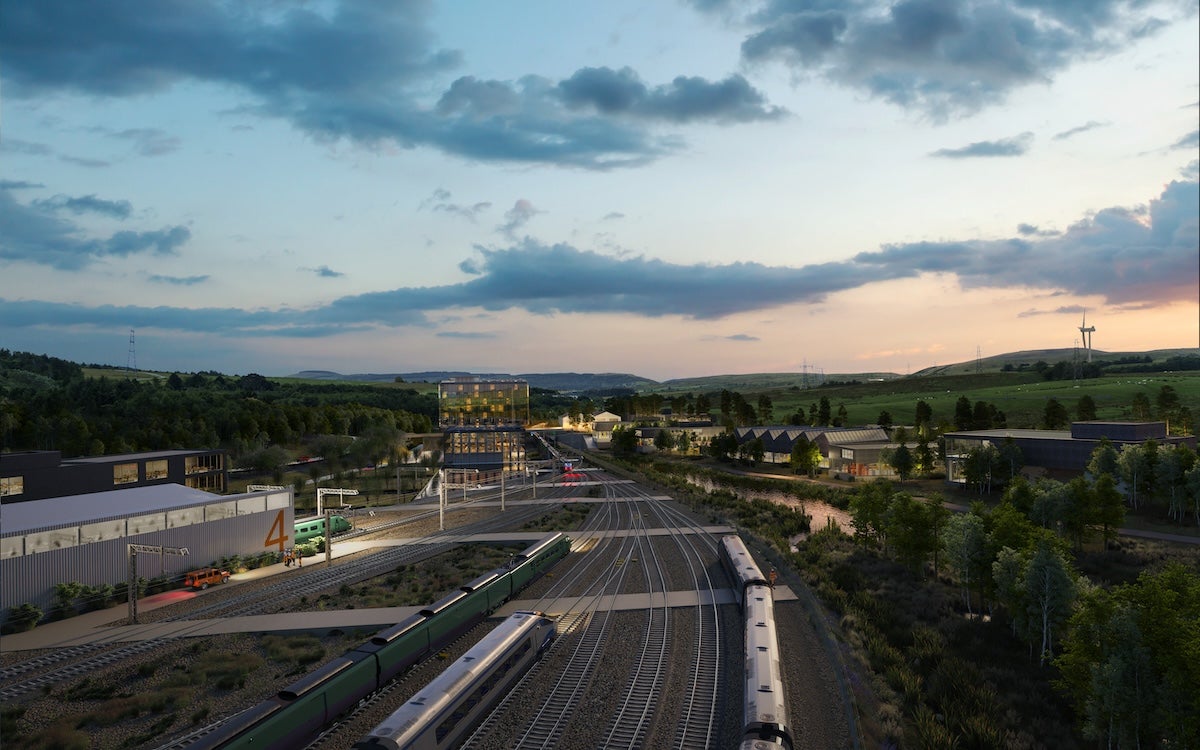The railways are a pivotal part of the UK’s infrastructure. The most recent Office for Road and Rail figures recorded a total of 420 million journeys made by passengers in Great Britain from April to June 2024, up 7% from the same period in 2023.
Rail makes a huge contribution to the UK’s economic productivity and connectivity. With many parts of the network now full at peak times, new capacity is urgently needed, alongside making existing operations more resilient and efficient.

One way this is happening is through digital transformation. With modern signalling and train control capabilities, such as Connected Driver Advisory Systems (CDAS) and Traffic Management (TM), the industry can start to improve capacity on existing lines in the short to medium term, without the high costs and long timelines of delivering completely new railway infrastructure.
Building trust in digital systems
Improving the ability of operators to measure and sense what’s going on is a big part of this. We’re starting to see greater use of Internet of Things (IoT) sensors to monitor everything from passenger flow and fleet status to planning, scheduling, and optimising maintenance schedules. This increased digitisation must also be cyber resilient, with railway cybersecurity designed into these systems from the outset.
Operators need to be confident that they can proceed with rolling out more digitally enabled ways of working, with automated reporting, warnings, and actions; and trust the output those systems are giving.
This cyber resilience is fast becoming a legal requirement. There must be a detailed understanding of the intricacies of designing secure, resilient solutions for control and management – and trust that data on things such as train position can be trusted to be accurate.
The rail industry needs to be properly equipped to deal with cyber threats just as it would be for any other safety or operational risk because if there’s any doubt, services must be halted.
One example of where we can build trust in these digital systems is through establishing secure communications. Online Key Management Systems (OKMS) help secure and manage the transfer of safety-critical information between things like trackside equipment, and in-cab European Train Control Systems (ETS) equipment.
Already deployed on several railway systems around the world including the UK, the online element means that control keys and instructions can be issued in a more automated fashion, without the need for a human interface.
A leading rail innovation centre
Several organisations across the industry are helping develop, shape, and test the next generation of rail and mobility. One of them is the Global Centre of Rail Excellence (GCRE), which will become one of Europe’s leading rail innovation centres when it opens in South Wales.
The GCRE will have the capability to test new technologies and solution innovations, including everything from the lifespan of infrastructure as it ages to system integrations, as well as delivering training with university and industrial partners. Thales, with our expertise in protecting critical systems for rail networks and operators across Europe, recently signed a Memorandum of Understanding (MoU) with the GCRE.
There are several ways our objectives and activities align between the two organisations. We are both committed to addressing core aspects of our future Critical National Infrastructure through technological innovation and investment, alongside increasing the cyber resilience of this infrastructure.
We are committed to innovating on railway cybersecurity to support digital transformation, as well as investing and driving the future direction of what cybersecurity is needed for in the era of AI. Once the GCRE gets up and running, we will be working closely together on testing and exercising digital security in the rail industry.
Railway cybersecurity technology paired with talent
As important as it is, however, the railway of the future won’t just be about the technology. We also need the talent and workforce in place to make the digital railway an operational reality, encouraging those with cybersecurity backgrounds, as well as those just beginning their careers, to consider roles in rail innovation.
To that end, a significant part of Thales’ collaboration with the GCRE will be in delivering and developing educational and training programmes.
Thales has already worked with over 200 schools and 8,000 students across South Wales to inspire young minds about these prospects, alongside a partnership with Cyber College Cymru for those in their next stage of education to create pathways for students to pick up skills and connect with job and training opportunities in the industry.




